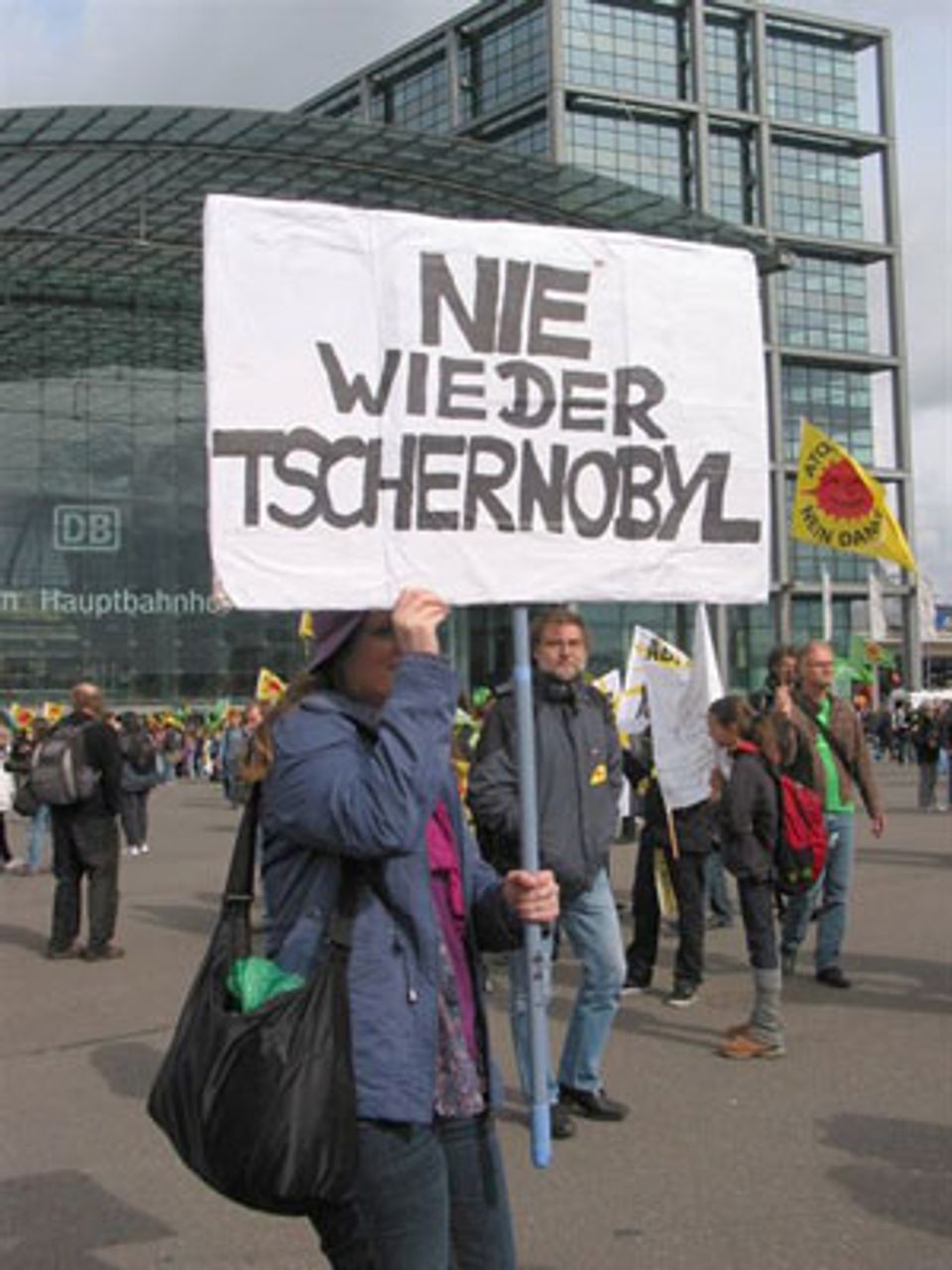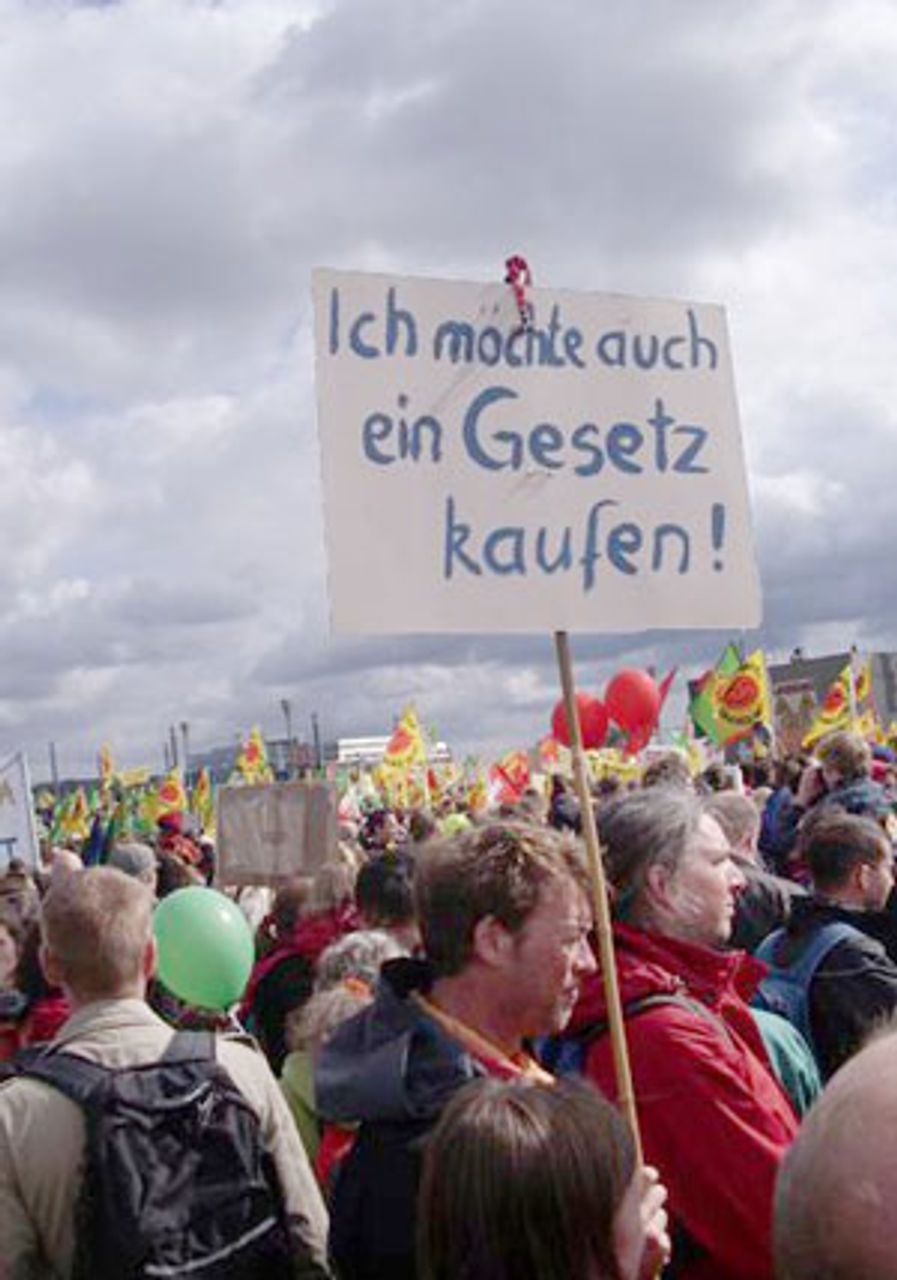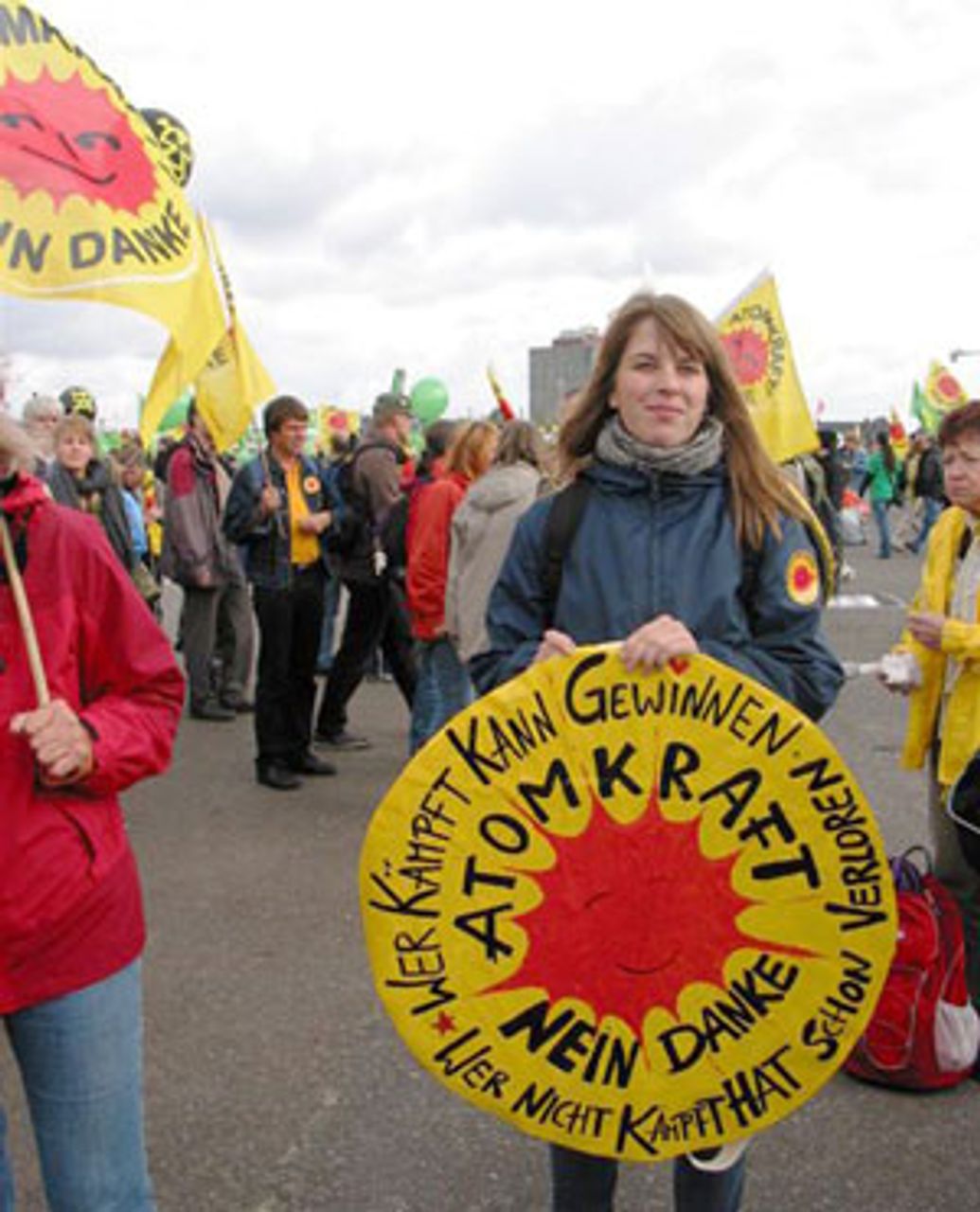A total of 100,000 people demonstrated in the centre of Berlin last Saturday against the energy policy of the German government. Held under the slogan, “Nuclear power: Stop now!”, attendance at the protest was twice the size expected by the organisers.
Ten years ago the previous Social Democratic Party-Green Party government (1998-2005) agreed the termination of nuclear power in Germany. In a recent decision, the current coalition government of conservative parties and the free market Free Democratic Party has bowed down to the demands made by the energy lobby and agreed to extend running times for nuclear plants by an extra period of between 8 and 14 years. The new concept is to be finally decided at the end of the month by the cabinet and adopted in October by the Bundestag.
 “Never again Tchernobyl”
“Never again Tchernobyl”The deal awards additional billions in profits to the country’s four big energy companies, which, for their part, are merely being asked to contribute to an additonal tax on nuclear fuel. In a secret agreement, the government also assured the energy concerns that they would not be burdened financially for any additional safety precautions.
Saturday’s demonstration. Large numbers of young people demonstrated alongside veterans of the country’s anti-nuclear power protest movement, which goes back to the 1980s. Whole families, consisting of three generations, took part, and participants encircled the central government administration area in Berlin, blowing whistles and banging drums and rattles.
The emblem of the demonstration was a red sun on a yellow background, the symbol of the anti-AKW movement. Demonstrators also carried a number of imaginative banners and posters.
A number articulated fears of a nuclear disaster: “Our grandchildren should laugh, not radiate”. Others castigated the energy concerns for their greed for profit: “Our health is more important than your profits” and “Stop the nuclear greed of the electricity companies”. The subordination of the government led by Angela Merkel to the nuclear industry lobby was also a subject of critique and ridicule: “Nuclear power triumphs, because Merkel tells lies”, “Running times extended by a government for hire”, and “I would also like to buy a law”.
 “I would also like to buy a law”
“I would also like to buy a law”The organisers, an alliance of 18 organisations, strove make the demonstration as non-political as possible. Their aim was limited to forcing the government to retreat from its energy policy under pressure from a social alliance so broad that it includes members of the government camp. No attempt was made to link the nuclear issue to other burning social concerns such as the cuts being made to the German welfare state or the war in Afghanistan.
Representatives of political parties were not allowed to talk in the concluding rally. Instead, the platform was handed over to various environmental organisations, a member of the executive of the trade union IG Metall and a representative of alternative energy concerns. Both of the latter speakers warned of the negative consequences of the government’s energy policy for the future prospects of companies specialising in renewable energy.
Although they did not speak and were not official sponsors of the protest, the Greens, the SPD and the Left Party sought to exploit the demonstration for their own ends. The chairpersons Sigmar Gabriel (SPD), Claudia Roth (the Greens) and Gesine Lötzsch (the Left Party) all took part in the protest alongside many other leading party functionaries. Their attendance was entirely cynical.
 “Nuclear Power: no thanks!”
“Nuclear Power: no thanks!”Ten years ago, the SPD and the Greens had agreed on a so-called “nuclear consensus” that took the wind out of the sails of the anti-nuclear movement at that time. The SPD-Green government had guaranteed an average running time of 32 years for nuclear reactors and high levels of financial compensation to energy groups as the basis for its termination of nuclear power.
As a result of the deal, energy concerns have been able to continue to run their plants, even if they were technically outdated and unsafe. The long-running protests against the transport of highly radioactive waste through the country ebbed, although it was a matter of public knowledge that the deal made with the energy companies would be once again up for grabs when a new government took office in Berlin. Now, the SPD and the Greens are cynically jumping onto the bandwagon of the latest anti-nuclear protests as a launch pad for a return to government.
To this end, they are prepared to raise every type of demagogic demand. SPD leader Sigmar Gabriel even called for a popular referendum over the issue of extending the running times of nuclear plants. The SPD was ready “together with the coalition to amend the constitution accordingly”, he told Spiegel-Online. This is an absurd proposal. Gabriel is very well aware that the Merkel government would never agree to such an amendment of the constitution. Gabriel justified his demand by declaring that it would work to combat political apathy and “help bring peace to our country and above all close the gap between politics and citizens.”
The Green chairperson Claudia Roth announced further countrywide protests. Roth declared that the resistance would not only take the form of public demonstrations and protests but would also be conducted in courts and at a regional level, as part of “a broad social alliance against what is a false policy”.
Should the SPD and the Greens return to government, there can be no doubt that they would be just as submissive to the demands of the energy lobby groups as were Gerhard Schröder (SPD) and Joschka Fischer (the Greens). As social tensions grow and protests encompass broad layers of the middle class—as with the protests surrounding Stuttgart 21—the main concern of the SPD and the Greens is to restore public confidence in the government and state apparatus. To this end, both the Greens and the SPD have made clear they are ready to forge an alliance with the CDU, as they already have done in Hamburg, Saarland, Thuringia and Saxonia-Anhalt.
For its part, the Left Party regards the anti-nuclear movement as a means to shift closer to the SPD and the Greens. To this end, the party’s national executive unreservedly supported the demonstration on Saturday and provided financial support.
